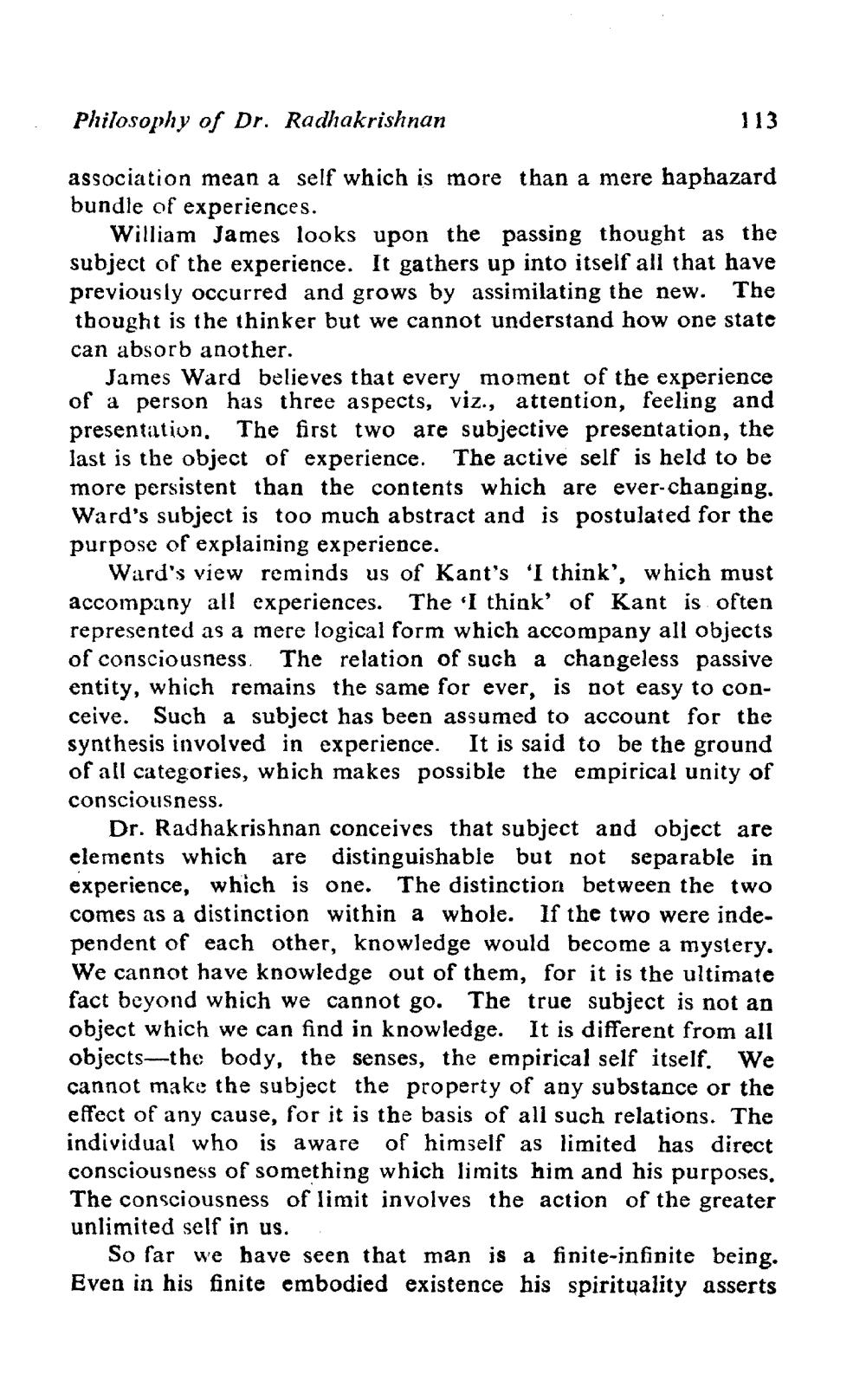________________
Philosophy of Dr. Radhakrishnan
113
association mean a self which is more than a mere haphazard bundle of experiences.
William James looks upon the passing thought as the subject of the experience. It gathers up into itself all that have previously occurred and grows by assimilating the new. The thought is the thinker but we cannot understand how one state can absorb another.
James Ward believes that every moment of the experience of a person has three aspects, viz., attention, feeling and presentation. The first two are subjective presentation, the last is the object of experience. The active self is held to be more persistent than the contents which are ever-changing. Ward's subject is too much abstract and is postulated for the purpose of explaining experience.
Ward's view reminds us of Kant's 'I think', which must accompany all experiences. The 'I think of Kant is often represented as a mere logical form which accompany all objects of consciousness. The relation of such a changeless passive entity, which remains the same for ever, is not easy to conceive. Such a subject has been assumed to account for the synthesis involved in experience. It is said to be the ground of all categories, which makes possible the empirical unity of consciousness.
Dr. Radhakrishnan conceives that subject and object are elements which are distinguishable but not separable in experience, which is one. The distinction between the two comes as a distinction within a whole. If the two were independent of each other, knowledge would become a mystery. We cannot have knowledge out of them, for it is the ultimate fact beyond which we cannot go. The true subject is not an object which we can find in knowledge. It is different from all objects—the body, the senses, the empirical self itself. We cannot make the subject the property of any substance or the effect of any cause, for it is the basis of all such relations. The individual who is aware of himself as limited has direct consciousness of something which limits him and his purposes. The consciousness of limit involves the action of the greater unlimited self in us.
So far we have seen that man is a finite-infinite being. Even in his finite embodied existence his spirituality asserts




